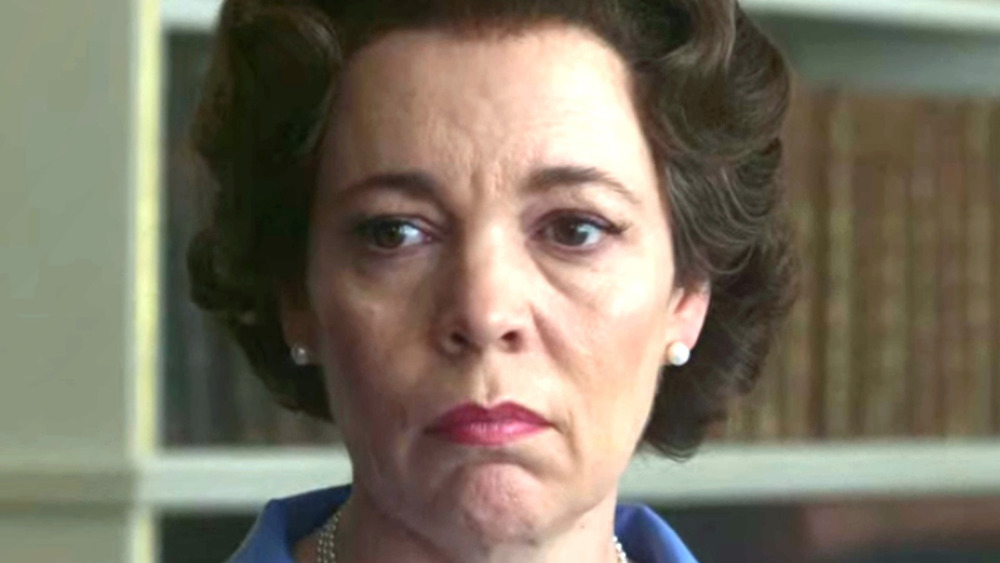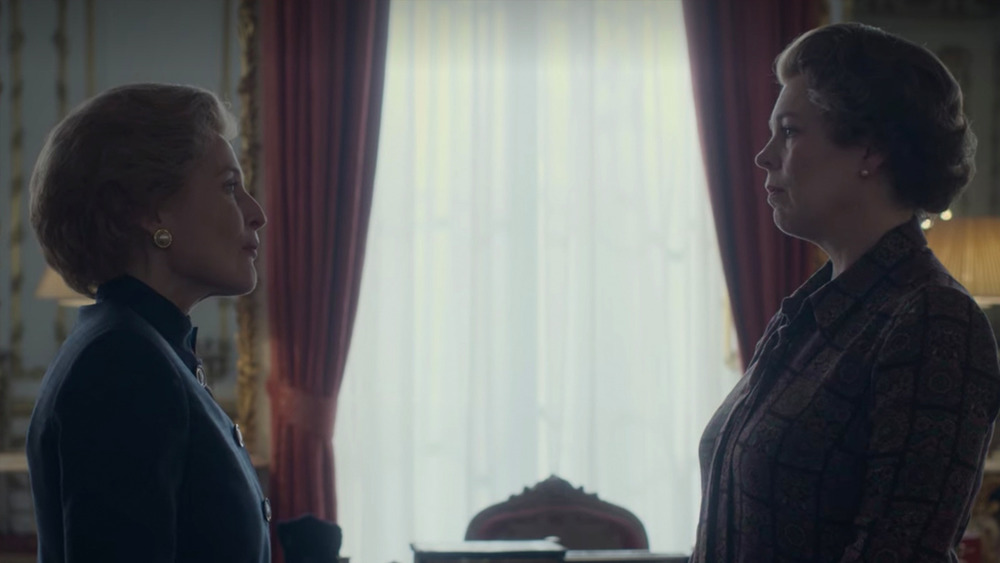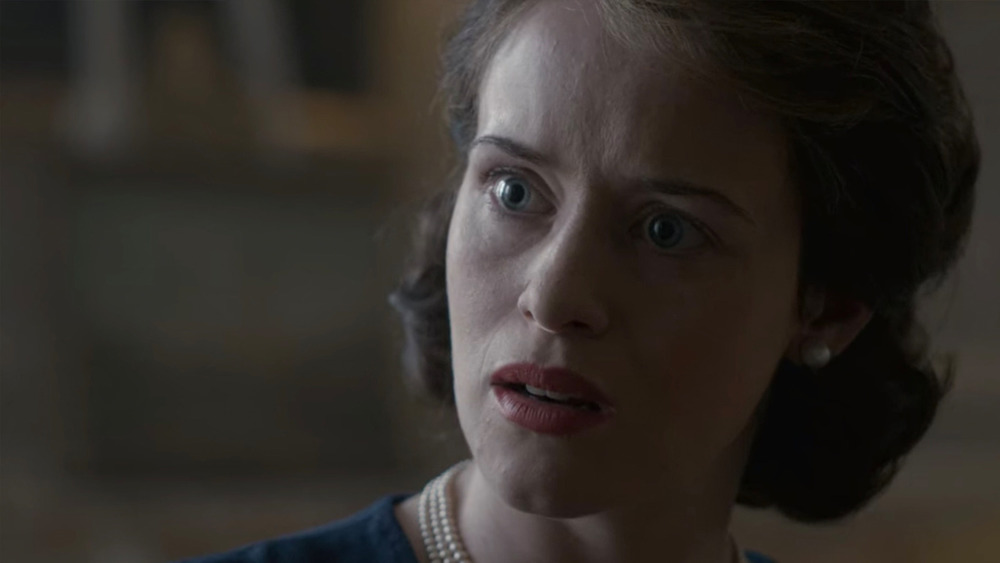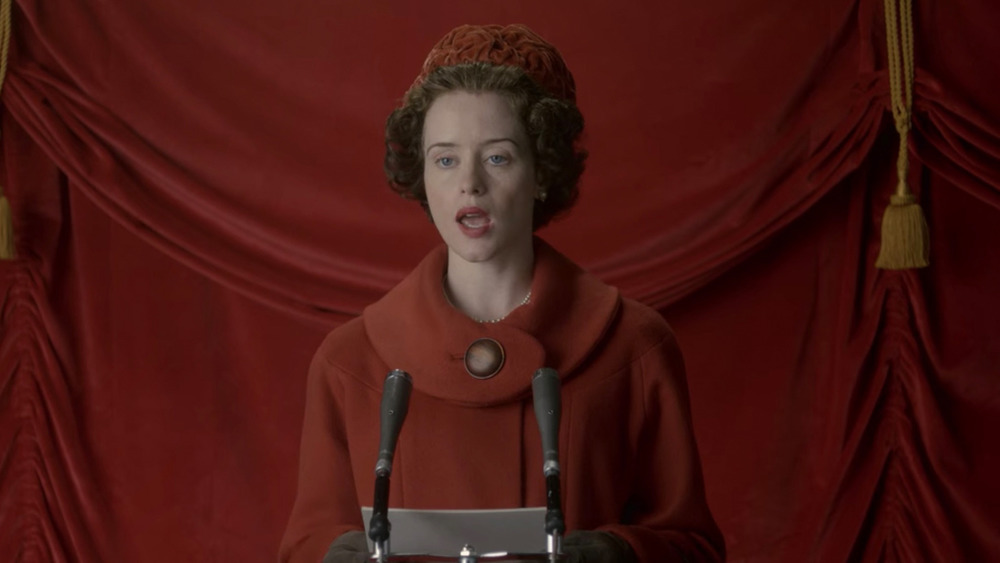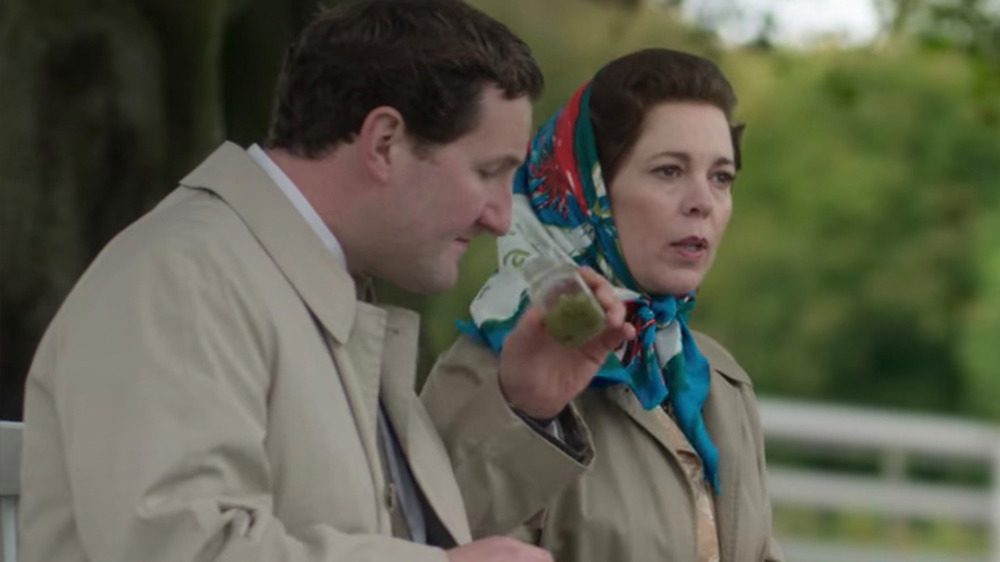Rules Queen Elizabeth Has To Follow On The Crown
The critically claimed and hugely expensive-to-produce Netflix series The Crown saw the premiere of its fourth season in November 2020. Unfortunately for fans, the fifth and final season won't begin filming until sometime in 2021, so the misery of the House of Windsor most likely won't continue until late 2022. We do know the final season will swap out Olivia Colman for Imelda Staunton in the role of Queen Elizabeth. We also know that given where season 4 ended, season 5 will most likely cover Charles and Diana's divorce and her subsequent tragic death.
Over the first four seasons, Queen Elizabeth II has undergone considerable growth as a character, and not always in positive ways. In earlier seasons, she rose from a young and inexperienced 25 year old into an inspiring leader. But in more recent years, Elizabeth's respect for tradition has caused drama in her family's lives. Being the Queen of England comes with many rules, which Elizabeth respects and follows. But she interprets these rules in ways that even another British monarch might find rigid.
Here are the written and unwritten rules Queen Elizabeth has to follow on The Crown.
She can't interfere with the country's government
Walking the line between figurehead and actual ruler is one of Elizabeth's biggest challenges, and how she handles it has implications for the survival of the British monarchy itself. This rule applies to all modern British monarchs, but it's one of the guiding principles in Elizabeth's public life, and The Crown frequently mines it for dramatic effect.
She has no direct power over the British government, and yet she still holds weekly meetings with the prime minister, and still has a ceremonial role in forming the government itself. Many episodes of The Crown begin with a real-world crisis or disaster that will have implications for Britain, but Elizabeth's hands are always tied by protocol. It's even more frustrating when a prime minister's leadership proves to be incompetent, yet Elizabeth still isn't supposed to intervene, or even comment on it.
Elizabeth's "prime directive" is directly challenged at the end of season 4, when Prime Minister Margaret Thatcher loses her re-election bid and asks the Queen to go beyond her duties and invalidate the election. Elizabeth does the right thing, like usually does.
The country always comes first
Both the person and the character of Queen Elizabeth II are people who have devoted their entire lives to public service, and that does mean "entire." Unfortunately, this devotion comes at the expense of both her own happiness and that of her family's.
This conflict most often plays out when Elizabeth gets involved in her family's love lives. Elizabeth's father, George VI, came to power unexpectedly after his older brother, Edward VII, had to abdicate because he fell in love with American divorcee Wallis Simpson. That experience has made Elizabeth's beliefs about her family's potential partners rigid and inflexible. In season 1, she forbids her sister, Margaret, to marry Captain Townsend because he is a commoner. In season 3, she prevents her son, Charles, from marrying Camilla Parker-Bowles because Camilla is an aristocrat but not a noble, and because she considers Camilla "promiscuous." She's basically the anti-Match.com for the entire royal family.
Elizabeth is willing to devote her life to public service, but not everyone in her extended family is, which leads to more than a little resentment.
She can't show any vulnerability
Elizabeth II is a good example of the saying, "You either die a hero or live long enough to become a villain."
She was born in 1928, came of age during World War II, and watched up close as her father, King George VI, led the country through some of its darkest days. When she ascended to the throne at the age of 25 in 1952, Britain was in a recession and the rapidly declining empire was facing an uncertain future. The first two seasons of The Crown show Elizabeth's response to these challenges. Like her father, she presents as a strong, resolute leader who can steer the country through crises like the Suez Canal conflict or the later Aberfan mining disaster. Britain changed over the years. After the cultural revolutions of the 1960s and 1970s, the British started to question the need for their ceremonial monarchy. The British public began to want their royals to be more human and "real," people they could relate to. But Elizabeth struggled to evolve with the times.
When Diana Spencer arrives on the scene in season 4, the public falls in love with the more relatable princess. Diana is a welcome contrast to the buttoned-up royal family. It isn't difficult for the British press to characterize Elizabeth and her traditionalist family as the bad guys in Diana's story.
She can't take days off
Queen Elizabeth is a workaholic. In real life, she only just began scaling back her official duties in 2020, almost 70 years into her reign (via Express U.K.). The show depicts this accurately. Elizabeth is rarely seen not working, and even when she does carve out time for her few hobbies — like her horses and her dogs — she's still on call.
Part of this is due to the demands of being a public figure and a leader, even a figurehead. But it's also a choice she makes, again and again. Her lifestyle contrasts with some of her son and daughter-in-law's choices, as seen in season 4. Charles and Diana are called to tour Australia shortly after Diana gives birth to William. Diana only reluctantly agrees to leave her baby at home, and when William struggles in Diana's absence, she demands to bring him along.
Elizabeth handles things much differently in season 1, when she and Philip embark on a months-long world tour of the commonwealth (via BBC News). In that case, Elizabeth leaves young Charles behind for almost six months. Her job doesn't leave much time to be a mother, and it affects her relationships with all her children, which feels pretty true to form.
